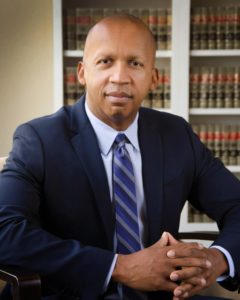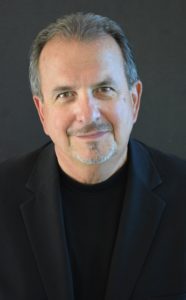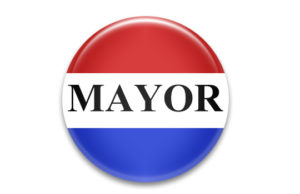
Things We Loved in August
Your Guide To The Delray Beach Boca Raton Lifestyle
We've got our fingers firmly on the pulse of everything that is Delray-Boca.
And while we're not out to replace the local news media, we think you'll agree we have a very unique perspective to offer on some of the most important stories that affect current and future local residents.
Subscribe to our updates so you never miss a thing in Delray-Boca. Have a tip? Send it to us here.

Things We Loved in August

The story of iPic in Delray is a long and complicated one.
So let’s sit for a spell and unpack a little of it because it’s important to try and understand.
The CRA board chose iPic over three other proposals in August 2013. That was six years ago.
Ipic’s winning bid promised a theater and office space on land that once housed the library and the Chamber of Commerce.
But the history of that RFP goes back even further than 2013.
I was on the commission in the early 2000s when we moved forward with a complicated transaction to move the chamber and library and free up the land for redevelopment. The goal was to give the chamber and library new and better facilities replacing what had become dilapidated buildings.
Both of those goals were achieved—with the chamber occupying beautiful space under the Old School Square Parking Garage and the library occupying larger space on West Atlantic Avenue. The library’s board believed that the library would better serve the needs of the community on West Atlantic.
We agreed.
It was not an easy decision and it was not without controversy either.
I remember hearing from residents who didn’t want the library to move to the West Atlantic corridor. One citizen put it bluntly: “why would you put the library out there with those people?”
Yep, that was said.
It just made us want to move it more.
Still, the transaction was a complicated one since the Chamber had a lot of years left on a very sweet lease and there were a lot of moving parts and entities involved.
But it got done, because that was an era where people were able to work together. I sure miss those days.
Once the deal was struck, an RFP was issued and awarded to a group that envisioned a mixed use project and a hotel. But the Great Recession hit and the deal never got off the ground. Eventually, the CRA issued a new RFP and that led to the iPic deal.
It should be noted that CRA staff liked the iPic bid, but did not rank it first. There was another theater concept—an European style theater if I remember correctly—that they ranked ahead of iPic.
But once the Boca-based iPic was chosen, the CRA staff embraced the concept and worked to make it happen.
The proposal sparked controversy—as so many projects do—over concerns about traffic, design and parking. Those are the usual bugaboos—all understandable.
Mix in personalities, ancient feuds, politics, misinformation and the difficulty of getting things done and it took nearly six years from awarding the RFP to opening night. When iPic won the deal the expected opening date was 2016—it took twice that long.
It seems like the entire town showed up for the grand opening party which may have been the best party Delray has ever seen.
The reviews were mostly glowing—the building was next level beautiful, with living walls of plants, striking art work and plush seating.
The office space—still in the process of being leased—is also beautiful and much needed in our downtown to complement and diversify our abundance of food and beverage options.
Since then, I’ve been to iPic twice. Most of my friends have gone as well— a time or two.
We tend to agree—it’s a good experience but very expensive and not something we see ourselves doing regularly and many of us are movie fans who go frequently.
That said, I supported iPic and hoped the concept would succeed creating a new use downtown and adding jobs to our city since there were promises—albeit sometimes vague ones– to move their corporate headquarters here. It’s important for cities to be business friendly and to have good economies. That doesn’t mean compromising your ethics, selling your soul or offering back breaking incentives. But it does mean hanging an “open for business” sign at your City Hall and being reasonable. It also means welcoming debate.
That said, I and many others were disappointed in the tone of the debate surrounding iPic.
And while I sympathized with the views and concerns of opponents, I thought more than a few crossed the line with personal attacks on those who supported the project. I also thought some elected officials pushed it by supporting the use but adding costly conditions (outside the scope of the RFP) making it more difficult to succeed.
I felt so bad about the treatment, that I invited iPic CEO Hamid Hashemi to lunch to tell him that despite the vitriol Delray was a nice place and many people wished him and his company success.
So when the news broke last week that iPic missed an interest payment on over $200 million in debt and may have to consider bankruptcy it stirred a lot of emotions. This week, bankruptcy became the path and iPic will operate as usual until it either restructures or is sold.
There was the usual chorus of “I told you so’s” and a slew of people wishing the company ill will which I think is wrong.
Do we really want to see a company fail? Do we want to see an empty building in the heart of our downtown? Do we want to see iPic staff lose their jobs because management loaded the company up with debt?
I don’t think so.
You know who should be mad?
iPic shareholders who have seen their stock plummet.
The retired teachers who depend on their Alabama pension fund also have a right to be angry and concerned since they funded a large chunk of that debt.
And yes, citizens of Delray are justified in feeling disappointed. Our downtown’s real estate is precious. It’s not a good feeling to see a high profile project threatened.
The initial financial blogs quoted iPic as saying sales dipped as a result of the government shut down earlier this year. That really doesn’t pass the smell test.
Round two explanations made more sense: iPic was a trendsetter but other chains are loading up on the luxury too—often at lower ticket prices. So there’s competition in an industry being disrupted by streaming services. Add crushing debt to that equation and all the innovation in the world or the biggest rooftop bar won’t save you.
Still, many people in this community supported the downtown iPic. I did.
While pricey, we liked the idea of another use in the downtown and we liked the idea of Class A office space and a corporate headquarters too.
We liked that iPic offered corporate event space, special events and unique programming through partnerships with entities such as Netflix. We trusted their projections and studies that showed that this market could support an iPic so close to the Mizner Park location.
We liked that business publications were featuring the company and that it was able to go public and was considered an innovator in its space.
So seeing it fall into bankruptcy is no reason to celebrate.
This is where strong communities come together and make lemonade out of lemons. I hope and trust we will do just that.
So what can we learn from this?
iPic Delray has not struggled because of parking or traffic woes.
The local theater was not challenged because downtown Delray isn’t strong enough to support the use.
Clearly, the business model is deeply flawed.
But other chains are managing to figure it out.
Living Room Theater at FAU regularly sells out offering offbeat, independent and foreign fare.
Alamo Drafthouse and other innovative chains seem to be doing well and drawing crowds.
I hope iPic finds a good strong buyer with solid vision and a healthy balance sheet. I also hope the Alabama teachers don’t get crushed in the process. That one might be tough…
It would be great if the Class A office space that was built gets leased and brings much needed jobs to our city.
Regardless, whatever happens we should find ways to work together to pick up the pieces and make this a success somehow, someway. That’s what strong towns do.
What a concept, huh?

Don’t miss the latest exhibit in the Cornell Museum. Seven Solos is awesome.
Things we loved in July

Delray’s own: Coco Gauff
Every now and again an athlete breaks through and touches the hearts and minds of people all over the world.
The ability to capture those hearts is part of the magic of sports.
Maybe it’s the talent it takes to excel, maybe it’s the sacrifice or the personal story. Regardless, some athletes seem to rise above.
You don’t have to be a tennis fan to be caught up in the story of Cori “Coco” Gauff.
The 15-year-old from Delray Beach will play in the Round of 16 today at Wimbledon and that’s a monumental achievement. Coco is making headlines all over the world after three scintillating victories, including a convincing first round win over her hero Venus Williams who also has extensive ties to Delray.
There are many aspects to the Coco story. Yes, she’s the youngest. Yes, she’s the “next one” and yes she has a very big game.
But she also has the “it” factor, that intangible that is hard to explain but you sure know it when you see it.
She plays without fear.
Staring down her idol Venus, beating a past semi finalist in the second round and digging deep to escape a tough third round match against a powerful and experienced opponent who was playing very very well announced to all who were watching that they were witnessing something special.
Coco has that champion’s demeanor. She know she belongs. And despite what must be enormous pressure she continues to play fearlessly, going for shots and digging deep when she gets in a hole.
It’s amazing to watch. And she has become the story of the tournament no matter what happens from here on out.
You get the sense that you are watching history, the glorious coming out party of a special transcendent athlete.
Of course, a few wins at a high profile event does not a career make.
But…this feels different. This feels real.
For her hometown of Delray Beach, Coco’s amazing run has been a joyous occasion.
Large crowds gather at her parents restaurant, The Paradise Sports Lounge on West Atlantic Avenue and Military Trail for “watch parties” that have been covered on the national and international news.
Leading the cheers are Coco’s grandmother –the wonderful Yvonne Odom, herself an historic figure as the first African American student to attend Atlantic High School.
We’ve written about my friend Mrs. Odom on this site. She’s special too.
That her own athletic ambitions were scuttled by the racial attitudes of the times is a part of her grand daughter’s amazing story. Yvonne was not able to play sports at Atlantic despite her considerable athletic talents.
To see Coco thrive at Wimbledon must be extra special for Mrs. Odom and her family. You can see the joy the family is experiencing and it’s inspiring.
I’ll be hoping that the run continues. But even if it ends today or with Coco lifting the championship trophy, we have a strong sense that this story is just beginning.

Bryan Stevenson
Sometimes you see someone so special that it literally takes your breath away.
Someone so brilliant and emotionally intelligent that their words stop you in their tracks and you are left changed by the experience.
That’s how I felt when I heard Bryan Stevenson speak recently at the annual meeting of Leadership Florida in Orlando.
Stevenson is the founder of the Equal Justice Initiative which is the subject of a new HBO documentary.
His work focuses on race and criminal justice reform and how we can inch our way toward a more perfect union.
We live in a society in which 1 in 3 African American males and 1 in 6 Latino men will end up incarcerated; a disturbing statistic that we somehow seem to accept. As if those lives are disposable. As if our nation can afford to throw these people away.
Stevenson wants us to chafe at these statistics.
It’s not that he wants us to feel bad or guilty.
In fact, he wants us to heal and feels that the only path to healing is facing what ails us as Americans.
Stevenson is a founder of the only museum dedicated to the history of lynching in America. It’s located in Montgomery, Alabama.
In fact, he was in Orlando to dedicate a marker at the site of a lynching in that city right here in our state.
By putting the issues front and center, Stevenson is hoping to spark a dialogue and a process that will ultimately lead to the airing of truths and a national reconciliation.
He fears what will happen to us if we don’t discuss these painful issues—slavery, bigotry, racism, violence. He believes it is keeping us apart.
Regardless of how you feel, it’s hard to deny that we have a racial divide in this country and in our own community.
Delray has a fraught relationship with race—Swinton has been a dividing line, we wrestle with issues of equity, trust, inequality and how to communicate.
I see it every day in Delray.
I feel it too.
I know I am not alone.
But I also know that many people don’t feel the tension or have no interest in engaging.
But those who care about making a lasting difference should care. Because the divide holds us back and we are forever at risk of volatility if we ignore or pretend that these issues aren’t real or don’t exist. We will never reach our potential until we face up to what separates us.
So what we can do?
Stevenson suggests that we put ourselves where we typically refuse to venture.
The best part of Stevenson’s powerful message was his plea for people, especially those who seek to lead to get “proximate” to the issues in their communities.
Stevenson urges all of us to get close to the issues and get to know the most troubled parts of our community.
Proximity enables us to understand, empathize and eventually help.
Distance keeps us apart and does not allow for solutions to take root. It may even be wasteful since often we will prescribe the wrong solutions to community problems because we haven’t taken the time to get close to the suffering.
It may seem easier to turn away, but it’s not says Stevenson. The price we pay is too high—estrangement, anger, violence, division and a host of other ills.
As I watched Stevenson mesmerize a large crowd of experienced leaders, I couldn’t help but think that this is the kind of leadership we are missing in our cities and inour country.
We need leaders who share, empathize and truly care to get close enough to understand, grow and evolve.
It takes an investment of time and heart. It takes a willingness to set aside preconceptions and open ourselves to possibilities and healing.
This not us versus them politics designed to keep us angry and apart. This is true inclusiveness, idealistic and human. It summons our better angels.
We can choose to remain angry, divided and sure of our positions from the safety of our couches and echo chambers or we can be “proximate” and learn to love thy neighbor.
It’s a simple choice. And an obvious one.

Delray’s Coco Gauff makes her Wimbledon debut today.
Things We Liked n June
After reading a stellar review, we checked out the Driftwood restaurant on U.S. 1 in Boynton Beach.
It’s fabulous.
Located in the former location of Sculley’s, the Driftwood offers craft cocktails and farm fresh food inventively prepared from local farms.
We recommend the Yuca tots, the calamari (the presentation is very different), the deviled eggs and the pita and hummus.
Great happy hour from 3-6 daily.
We skipped the lion fish, but they offer it.
We went back to La Vie, a Middle Eastern restaurant in Pompano. It did not disappoint. Great food. Entertainment and a really cool atmosphere. Highly recommend.
We enjoyed Maya Flavors of India in Boca and Oli’s Fashion Cuisine in Wellington. Recommend both.
Johnny Mango’s on North Federal Highway is a local treasure. Just a fun place to stroll through and admire the orchids, plants and eclectic decorations. These are the type of unique local businesses you hope to see last and flourish.
A special thank you shout out to Elise and Charles Johnson for hosting a tropical cocktail party at their beautiful home.
The goal was to bring Old School Square board members and donors together for a fun evening of bonding. Mission accomplished. The Johnson’s are a special couple who quietly do a lot for Delray.
Congratulations to Two Fat Cookies on their new location right next to Salt 7 in the SoFA district. The new store is larger than their previous location in Pineapple Grove. We wish them well.
It’s also good to see the new Aloft Hotel at 202 Southeast Fifth Avenue nearing their grand opening. The hotel held a job fair in June. We look forward to seeing the new hotel and WXYZ lounge.
Impact 100 For Men awarded $50,000 to the Florence Fuller Child Development Center and $4,500 each to the Milagro Center and First Serve West Palm Beach at their annual meeting in June.
I’ve been a member of this terrific group since its inception two years ago. We need more members so we can give away more money to important non-profits serving our community.
Please consider joining. Visit https://unitedwaypbc.org/impact100-men/ for more information.
The Dish on Dishes
The chicken lemon picatta at Grand Luxe is awfully good.
It’s hard to beat the chips and salsa at Senor Burrito.
The Chicken and dumplings at the aforementioned Driftwood—very good.
The pasta dishes at La Villetta are outstanding.
Summer Movies
Don’t miss Rocket Man on the big screen. Elton John music, great acting and unique storytelling.
Yesterday is a feel good movie and features a slew of Beatles songs. We loved it.
Lean on Pete is streaming on Amazon. It’s a sad, but exceedingly well done movie featuring a boy and his horse.
Chocolate Everywhere
We finally made it to The Chocolate Factory in Delray.
Beautiful facility, friendly staff and delicious chocolate all made right here in Delray. Add it to your list of places to scope out.
Congratulations to Delray’s Gary Woodland who shot 13 under to win the U.S. Open golf tournament.
Yes, he lives here. In a Marc Julien home. Pretty cool.
On a sad note, Delray lost a great friend in June with the passing of Charlie Gwynn.
The long time business and civic leader was born in Delray in 1931.
He was a business owner, coach, volunteer and just a wonderful gentleman.
He was also a regular at the old Green Owl where he met daily with several other long time leaders to eat breakfast, sip coffee and hold court on all things.
That’s how I will remember Charlie. Meeting with his friends and greeting everyone with a warm smile.
On another sad note, Delray lost a wonderful benefactor with the loss of Sara Jo Kobacher this month. I had the pleasure of spending time with Sara Jo and her late husband Art as they worked toward their dream of establishing The Village Academy in Delray.
Opened in 2000, The Village Academy School on the Art & Sara Jo Kobacker Campus serves students from low income homes from birth (Head Start) through 12th Grade. Following Sara Jo’s wishes, the United Way of PBC will be the beneficiary of donations in her honor. Condolences may be sent to the family at https://www.schoedinger.com.
Recognition
Congratulations to the fabulous Crane’s Beach House on earning a place in the TripAdvisors’ Hall of Fame.
Crane’s received TripAdvisor’s Certificate of Excellence for the fifth year in a row.
In order to be eligible for the Certificate of Excellence, properties must maintain an overall rating of 4 out of 5 on TripAdvisor.
Only 10 percent of properties worldwide are in the Hall of Fame so this is a special and deserved honor indeed.
GM Cathy Balestiere and her team have been great assets to Delray for a very long time. So cool to see the property recognized.
It’s also heartwarming to see another deserving local business win national recognition.
Boca’s Farmer’s Table was named one of the “100 Best Al Fresco Restaurants” in America in 2019 by Open Table.
Farmer’s Table—which is wonderful—was selected from the reviews of more than 30,000 restaurants submitted by Open Table diners.
Congrats to Delray’s Joseph Gianuzzi on this well deserved honor.
Congratulations also goes to the Sandoway House.
Sandoway Discovery Center received a two-year grant totaling $90,000 from The Jim Moran Foundation. The funds will be used to support Sandoway’s Education and Animal Care Program which allows students and visitors to learn environmental education through hands-on activities and live-animal encounters. The Jim Moran Foundation grant will also allow for the purchase of a new environmental education book to be sent home with every student participating in Sandoway’s Junior Naturalist Program from a Title I school.
This from CNN and it’s not fake news.
(CNN) – “American tennis prodigy Cori “Coco” Gauff just became the youngest player in the Open Era to advance through qualifying to reach Wimbledon’s main draw.”
The 15 year old Delray native has often been compared to Serena Williams. It’s not an unfair comparison. Stay tuned. She’s special.
Coco plays Venus Williams today at Wimbledon. She grew up idolizing the Williams sisters, who also trained in Delray.
No less a legend than Roger Federer calls the match-up “fascinating.”
Have a wonderful July and a safe Independence Day!

Ken Gronbach is often asked by Fortune 100 companies to predict the future. He does through the power of demography.
There’s a tsumani coming to Florida and we are not prepared for it.
Those were the startling words we heard last week from a well-known demographer at Leadership Florida’s annual meeting at the Grand Floridian in Orlando.
The “tsunami” refers to a wave of people who will be heading to the Sunshine State in the coming years to seek tax relief, better weather and quality of life, according to demographer Ken Gronbach, an expert who is often hired by Fortune 100 companies to predict trends based on population and other factors that drive sales and lifestyle decisions.
Grombach is bullish on Florida but he also cautions that the state has no idea what’s about to happen and is deficient in a number of areas including housing. We just don’t have enough to serve the needs of the people who will be seeking a new life in Florida.
Interestingly, it’s not the “millennials” who will be driving growth but the tail end of the baby boom generation —those born between the late 50s and 1964 that will be fueling the growth.
“You don’t need a crystal ball,” Gronbach told Leadership Florida, a non-profit that consists of community leaders from throughout the state. “It’s simple math. We can predict people’s behavior based on their age and by looking at the Census we can know the size of the market that’s coming.”
So what does that mean?
Well…
Florida’s will explode (with people)
Bigotry will end (future generations are free of bias)
China, Japan and Russia have big demographic problems that they cannot avoid.
China’s economy will implode (their one-child policy was a big blunder)
Europe will be forever changed (immigration will change its character)
Funerals will double (the party will end for boomers)
Marijuana will be bigger than wheat (Cheech and Chong were right)
“We can accurately forecast what’s next based on the rise and fall of populations,” he says. “But it’s often missed by smart people who don’t recognize the power of demography.”
Now this may sound a little depressing, but if you see Gronbach he’ll tell you that’s it not.
“I can’t see a single number that worries me,” he says talking about the United States. “We won’t run out of food or room…the future is bright.”
In fact, one of his most provocative statements is that he does not foresee a recession anytime within the next 20 years because of population growth and trends.
But, if you’re someone who is disturbed by growth, Florida may not be the place for you.
In fact, in our own little world we are seeing some interesting growth trends. According to the Census, Boca has reached a milestone of 100,000 people and Delray is now around 70,000 people. Both cities have experienced double digit growth since the last Census in 2010, Boca at about 18 percent and Delray at about 14 percent.
And according to Gronbach we have only just begun.
“I live in Florida half the time—and if you go in-season the elderly in Florida range from 75- to 95-years-old. Boomers right now are 54 to 73, so they aren’t even there yet.”
But they are just off shore and they are descending on Florida “like locusts.”
Let’s let Mr. Gronbach explain: “What is going to happen is you have a tsunami offshore because the people, the generation right in front of the boomers, which is called the “silent generation,” they were born 1925 to 1944 and there are just over 50 million of them that were born in the U.S., with no immigration during their start up and even during their tenure. That would further have complemented their generation. But, instead, they are tiny, the smallest generation of the last 100 years.
So people ask me, what is going to be influenced by the boomers? And, I say whatever is going to happen, whatever these people consume, whatever senior citizens consume, be it health care or elder care or death care [i.e., funeral homes, etc.], or cruises or whatever, will be dramatically enhanced by the boomer generation of 80 million people. They are right offshore. It is coming, people have been lulled into thinking that it has already hit, and it has not. The boomers will change anything and everything. It does not matter, there are so many of them it will be a case of rising tides lift all boats.”
According to Gronbach, we will be 25 million housing units short in the United States as the children of Boomers begin to move out of their parents homes.
Not part of his presentation– but certainly a factor– were the changes recently made to the tax code which limits the deduction of state and local taxes on our federal income tax. States such as New York, New Jersey, California and Connecticut are seeing an exodus of tax burdened residents to places such as Florida and Texas.
It is estimated that luxury properties in Florida cost a third less than comparable properties in New York, a stat that savvy developers are beginning to explore and exploit.
Ultimately, Gronbach’s presentation is a very positive one for the United States especially as we ramp up our competition with China, whose one child policy he describes as the single greatest demographic blunder of all time because it has created an aging society that cannot take of its young or old.
But like everything, growth has its plusses and minuses, especially if we don’t prepare.
At some point, we have to address traffic and congestion issues, infrastructure, climate change (mysteriously absent from his presentation) and a host of other concerns. We also have to address land use and have an intelligent conversation about how to limit sprawl which creates traffic and burdens our fragile environment.
Still, Gronbach’s “math” makes for intriguing discussion. We ignore the numbers at our own peril. It’s simple math.

Mayors wrestle with everything from scooters to cannabis.
Every year, many— if not most— mayors give a “State of the City” address.
And each year, the National League of Cities studies what they’re saying and compiles the results into what they call a “State of The Cities” report (very creative).
The report ranks and discusses ten main topic areas that mayors are excited or worried about. It’s an interesting list and while economic development and infrastructure continue to be top priorities for cities, mayors are increasingly exhibiting leadership on newer issues—such as scooters, social media and marijuana.
Below is a list of the top 10 “movers” this year and some comments from a has-been who has been out of the game for 12 plus years.
Economic Development: Opportunity Zones
In 2019, 74 percent of state of the city speeches gave significant coverage to economic development — meaning a mayor or city manager provided concrete details on a plan, impact or goal related to growing the local economy. Of the 74 percent, 17 percent talked about opportunity zones. While some mayors are discussing what opportunity zones are and how to take advantage of them, others are moving ahead with opportunity zone policies.
Comment: Economic development has always been a hot topic, but opportunity zones are new. I think the zones are great public policy, but the powers that be missed some obvious zones (Congress Avenue, downtown Lake Worth) while blessing some areas that are already blessed.
Infrastructure: Ridesharing
Cities are becoming “smarter”, with new mobility services such as “dockless” bikes, ride sharing and scooters emerging in communities across the country. Mayors are recognizing that if you want to ditch your car in favor of a bike to get to work, you should, and now you can in many cities, towns and villages across the nation.
Comment: We never heard or ridesharing, Uber or Lyft in my day. We did know about carpooling. And bike lanes were a huge topic back in the day.
Health & Human Services: Recreational Marijuana
Communities are approving marijuana use at bars and cafes (really) and are expecting to accrue large financial benefits. From tax receipts to the diminishment of unsafe underground economies, cities are prepared to capitalize on this newly-regulated industry. Coverage of the recreational marijuana subtopic increased from two speeches in 2018 to seven speeches in 2019, an increase of 250 percent. In 2019, 46 percent of speeches significantly covered health and human services, and 10 percent of those provided concrete details regarding recreational marijuana, ranging from changing zoning codes to filing lawsuits against cannabis regulation.
Comment: Not sure we saw the legalization movement coming in the early to mid -2000s. And we thought CBD stood for Central Business District.
Energy & Environment: Solar Power
Advancing solar power is one of the many steps that cities are taking to fight climate change. Local governments are fostering solar energy growth by supplying government buildings and traffic systems with solar energy, embracing community solar power initiatives and reducing the energy burden for low-income households.
Comment: LED lights were just emerging as an option and LEED was gaining popularity. But sea level rise wasn’t on the radar screen.
Budgets & Management: Intergovernmental Relations
Cities are continuing to voice their concerns about the relationship between local and upper levels of government, particularly state overreach and fiscal constraints.
Comment: Mayors have always feared Tallahassee and Washington too. Home rule has always been a hot topic and while we would have welcomed help, we were happy if we weren’t bulldozed by mandates and wacky policy.
Housing: Blight and Elimination
In recent years, cities have implemented blight elimination measures, which include rehabilitating or demolishing vacant and abandoned properties to revitalize and strengthen neighborhoods.
Comment: Always a popular topic and focus. We did fear the elimination of Community Development Block Grants which pay for neighborhood rehab projects etc.
Public Safety: Education and Initiatives
Across the United States, more local police and fire departments are engaging with residents to increase education and awareness on public safety issues, ultimately building community trust.
Comment: A perennial. We called it community oriented policing and civic engagement.
Demographics: Civic Engagement
Mayors have consistently encouraged residents to engage in civic activities and provided their constituents with important opportunities that can impact their city’s future. In 2019, some mayors also specifically discussed plans regarding the political participation process and municipal election reform.
Comment: We were there for the hanging chads and the 2000 election so….election integrity and voting were always important concerns. We also were big on visions, charrettes, neighborhood dinners, advisory board recognition, town halls and forming neighborhood associations.
Education: School Outcomes
Both in 2018 and 2019, mayors discussed plans to achieve higher high school graduation rates. In 2019, mayors also announced school programs designed to address issues affecting student performance, such as chronic absenteeism and childhood trauma.
Comment: Education was a huge concern and focus.
Government Data & Technology: Social Media
More local governments are using social media to address pertinent issues within their communities and increase communication with their residents.
Comment: Social media didn’t exist, we didn’t even have a consolidated website when I was first elected in 2000. Technology was on our minds, we wanted online bill pay etc., and added streaming coverage of meetings but it was a simpler time. If someone said 3G to us, we assumed they meant the deli on West Atlantic. P.S. 3G’s has great pastrami.

Stability doesn’t have to mean boredom or a lack of imagination. It can mean that teams can dig in and succeed.
There’s been another rash of resignations at Delray Beach City Hall.
That’s not good news, despite the perfume put on the issue by some.
Turnover and instability in an organization is never a good thing. Of course, in a large organization people are always leaving and sometimes you have to get rid of a bad apple or two. It’s called addition by subtraction. But this feels different.
As of now Delray is searching for a city manager, an economic development director, a utilities director, a finance director, a public works director and a CRA Director. I might have missed a few positions. But that’s a pretty robust list. And that doesn’t include the resignations of the two top senior officials in the Community Improvement who resigned last week in the wake of an investigation into alleged misappropriation of grant monies.
Folks, this isn’t normal. And it’s not good.
Still, like most problems/issues there’s a silver lining and an opportunity.
But only if we recognize the situation and make this a teachable moment. That’s going to require self awareness and that can be a challenge.
Delray has had a stability problem for a few years now. Before 2013 or s0, City Hall was known as a very stable place.
Not a perfect place. But a stable place. A place where lots of good things got done on behalf of taxpayers and stakeholders. It was also a prideful place, where people seemed to collaborate and work effectively across departments. Again, mistakes were made and things weren’t always a well-oiled machine but for the most part City Hall was a happy and productive workplace, the kind that attracted talent and retained it as well.
It doesn’t feel that way anymore.
And it hasn’t for a while now.
This isn’t a criticism of anyone or anything. For the record, I like the interim City Manager and respect a lot of people who work at City Hall. I wrote a whole book about what I felt worked and what didn’t during my seven years as a commissioner and mayor.
I learned that for a city to create and sustain success, you need solid leadership and talented, stable management that work well together. That’s not rocket science. but I don’t know of a workaround. You need both.
Instability breeds inefficiency.
It’s expensive on many levels and the loss of institutional memory is an added concern because when experience walks out the door so does a whole lot of intangible value.
Few would argue that stability is a bad thing.
It’s hard to build a team, organization, business or any other complex endeavor when your human capital is constantly in flight.
That doesn’t mean you allow bad actors to stay or that you don’t have a culture of accountability. But it does mean that if people are leaving in droves, that you might want to pay attention, especially if many who are leaving have had success here or elsewhere.
Did they suddenly become incompetent and ineffectual or is there something wrong that we can fix?
Without pointing fingers, I don’t think what we are seeing is an aberration or the normal course of business. Something fundamental is wrong.
And this should not be news to those of us who pay attention. Our leaders have been told by executive recruiters that the city has a challenging reputation in the marketplace.
Therein lies the opportunity.
Now is the time to ask some hard questions, make some changes and find out why what’s happening is happening. It’s also a chance to transform the culture and make this city the very best place to work.
Working —and just as important staying —in a city as unique and special as Delray ought to be a compelling proposition.
These days and for a few years now, the evidence says something is up.
Perhaps it’s time to figure out what’s going on.
Because like any other business, cities are only as a good as their people.
If you attract good people and create conditions that enables that talent to thrive, you’ll have a smooth running machine and solve a lot of problems; but if you lose that talent or can’t even attract it. you’ll be spinning your wheels which is expensive and exhausting. You’ll end up in a costly spiral.
Human capital is everything. It just is. It’s not technology–that’s a tool. And it’s not always wages and benefits, which are important but aren’t the only factors in a stable workplace.
A revolving door of senior level managers is not a recipe for lasting success; it’s a sunk cost.

Great documentary with a guest appearance by Delray’s own Max Weinberg.
Things We Loved in May
It was great to see Boca Raton based Mela Artisans featured in Florida Trend Magazine in May. The company specializes in selling handmade goods made in India online and in stores such as Home Goods and TJ Maxx.
Keep an eye on this growing company.
FAU’s College of Engineering and Computer Science earned a $652,820 grant from the National Science Foundation to establish an Artificial Intelligence and Deep Learning Laboratory. That’s good news for FAU as the Lab is said to be a first of its kind grant for the National Science Foundation proof of the university’s growing reputation in cutting edge fields of research.
Over 64 of tomorrow’s stars converged on the Delray Beach Swim & Tennis Club May 4-6 for the United States Tennis Association Boys and Girls 18 and under championship.
The PIM Open features rising stars who come to Delray for three days of top notch competition.
The event provides a boost to the local economy just when we need it, putting heads in beds at hotels and exposing Delray to players, families, coaches, college scouts etc.
Tennis is an important industry in Delray and we should grow it, not litigate it.
We wish The EJS Project a happy one year anniversary and congratulate them on a great mini- documentary that was released in May. Check out the organization here: https://www.ejsproject.org/
We were honored to attend the 100th anniversary celebrations Plastridge Insurance at the Delray Marriott. Please see our blog about Plastridge and the legacy of the Lynch family here. We were also thrilled to see Plastridge win the “Business of the Century Award” from the Boca Chamber at a gala luncheon at the Boca Resort.
Plastridge Chair Tom Lynch told the capacity crowd that the key to success is to balance business with family life and to find time to take care of your health along the way. Tom is a terrific role model.
Congrats to fellow honorees Sal Saldana GM of Town Center at Boca Raton named Business Leader of the Year & Roxana Scaffidi of Florida Accounting & Advisers who was named Small Business Leader of the Year.
We were thrilled to see Frances Bourque get an honorary degree from the University of Florida in May. Please see our tribute here https://yourdelrayboca.com/our-frances-a-most-distinguished-citizen/
Speaking of Plastridge, CEO Connor Lynch was honored by Sun-Sentinel with a Next Excalibur Award.
Lynch, 38, was not only honored he is the first winner of the Next Excalibur Award, which recognizes the next generation of leaders whose voices will contribute to the growth and sustainability of business and civic life in Palm Beach and Broward counties. Connor was selected by a committee of previous Excalibur award winners. His father was an Excalibur winner in 2000.
How cool is that!
Restaurant fare
Crazy Mike’s has crazy good wings.
Timpano on Las Olas has awesome food.
Da Best on Dixie and Yamato is a great sandwich shop.
Okeechobee Steakhouse: a classic with a fun bar scene, great service and truly great food. A true gem.
We tried Duck Donuts in Boca and it was awfully good. Just delicious.
The penne with mushrooms at Sardinia—defies description.
Don’t miss the plum wine at Sushi Thai in Delray and we are loving the Bee Hive in Boca.
Also, if you visit iPic Delray check out the pizza. It’s delish.
Last but never least, Ziree never fails in the taste and service department. Highly recommend you visit.
Thanks Chuck
Kudos to our friend Chuck Halberg who does so much for the community.
Chuck, a longtime Arts Garage patron, donated the roughly $40,000 worth of improvements that will add a classroom, an improved box office, a bar and administrative offices.
Viva Las Vegas
I attended my first International Council of Shopping Centers convention in Las Vegas this month.
In a word, it was overwhelming. More than 30,000 attendees, miles of booths and exhibits and some interesting seminars on the future of retail and shopping center design.
One takeaway: while we read about the “retail apocalypse” bricks and mortar still has some life left. Sure things are changing and we have to pay attention and adapt, but 91 percent of retail sales still take place in a physical store. We’ll revisit some of these subjects in upcoming blogs.
The 2019 Boca Raton Bowl will be televised on ABC on a Saturday afternoon instead of ESPN on a Tuesday night. The game will be played in FAU Stadium and the date is Dec. 21. Time is 3:30. Very cool. Mark your calendars.
Movies:
We caught Booksmart at Cinemark. Wonderful directorial debut from Olivia Wilde. The film has a chance to become a classic of the coming of age genre.
Finally, saw Vice on a cross country flight. Powerful. Christian Bale just may be the best actor of his generation.
We also caught a special showing of Asbury Park: Riot, Redemption, Rock N’ Roll at the new iPic. Wonderful documentary chronicling the rise, fall and rise again of a seaside city. We’ll have more in an upcoming blog. Highly recommend you go if you love cities, rock music and New Jersey.
Books:
I finished two books in May and recommend both. Palaces for the People by Eric Klinenberg is a beautifully written book about the public realm and the best defense of public libraries I’ve ever seen.
Love the title. And the sentiment.
Investments in libraries, parks, community centers, art, culture etc., are essential keys to happiness and strong communities. It’s a good message for our troubled times.
Thanks to Kate Volman I read Matthew Kelly’s book on creating a winning and happy culture, the Culture Solution.
A must read for business, government, academics and non-profit leaders who care about creating winning cultures. And if you don’t care…well you aren’t really a leader.
Until next month. Thanks for reading.
Copyright © 2025 · Genesis Framework · WordPress · Log in